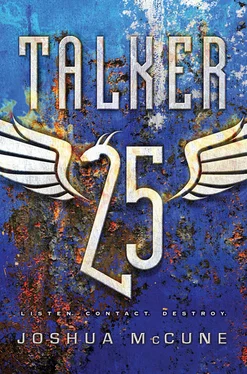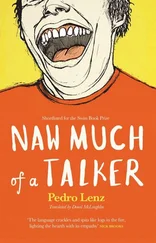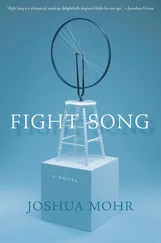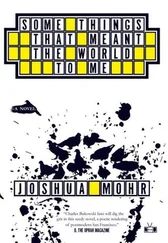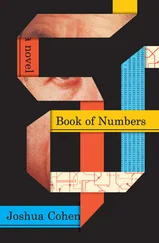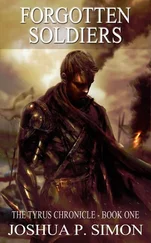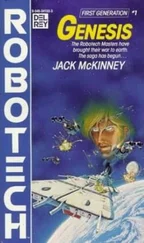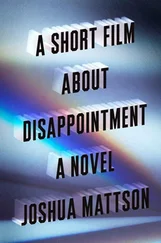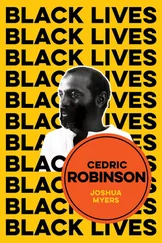There’s Ellen McCormack’s house. What’s left of it. In the city, she would have kept her archaeologist grandmother’s artifacts in the dragon shelter. Or in that bank. But not in Mason-Kline, a military outpost in cornfield, Kansas.
What about my pictures of Mom?
“Dad, what happened to our house?”
He shakes his head. “The wind caught the fire. The sprinklers couldn’t keep up. I got the cat and your brother’s turtles into the shelter.”
“My pictures?”
He squeezes my shoulder. “I’m sorry, Mel. We’ve got everything on digital. We’ll get them printed once things are straightened out.”
I nod and blink hard. It’s not the same. She’d signed and dated them all. Most had messages, little things— See you soon, Mel Mel. Sometimes notes about the dragons she’d salvaged or people she’d befriended. My favorite picture had her out of uniform and on the other side of a picket line, holding a sign protesting the government’s policy to relocate the Blues to dragon “sanctuaries” for observation and research. On the back it said Don’t tell your father, followed by a smiley face and a heart. Dated five years ago, a month after the government declared victory over the dragons.
Pieces of a life more important to me than anything. Gone because I needed to have her by my bedside, to look at whenever I wanted. Gone because of the dragons.
We drive alongside the crash site, moving no faster than a walk because of the All-Blacks and mounds of debris. A layer of ash covers everything. APCs surround a crater to our right, their mechanical arms digging out remnants of charred jet. The nearby houses will need to be replaced, but anybody who was in a shelter during the battle should be safe.
I say a silent prayer of thanks. Sam will be okay, and things could have been far worse. It’s amazing the jet didn’t take out any—
“Oh God.” I cover my mouth. On a clear day, free of smoke and A-Bs, I would have recognized where we were a long time ago.
The jet didn’t miss a house. It obliterated it.
It takes me two tries to get my phone out of my pocket. Shaking, I press the speed dial. Calling Trish Potter appears on the screen. I’m raising the phone to my ear when Dad grabs my hand and touches the off button.
“She won’t get the message for a while, and you shouldn’t worry her unnecessarily.” He wipes the tears from my cheeks. “Once they clear the wreckage, they’ll be able to access the shelter. They’re designed for high-stress impact, Melissa. There’s a good chance Major Potter survived.”
It’s his doctor tone again, and this time I know he’s lying.
Black.The color of America.
After the government instituted its blackout policy a decade ago, cars, houses, and cities went dark in under four months. Psychologists spoke out against what they called “the prevalence of grim,” pointing to the nationwide crime increase and skyrocketing suicide rates. But there were fewer dragon attacks, and the so-called “bright psychs” lost favor with the media.
The dark world never bothered me much, except in junior high when it became trendy to dress like an A-B. I was one of the few who didn’t dye my hair or wear Smoke® makeup. It was all quite ridiculous.
Mom hated it. After she died, she was buried in a white coffin in a white dress. Everybody wore pastel colors, like we were at an Easter wedding in a time before the dragons. And there were white lilies everywhere. That was ridiculous, too, but in a wonderful way.
But today there is only black.
And it squeezes me from every direction. Black smoke around the car, a constant reminder of Sam. Black soot over Ms. Potter’s dragon shelter, maybe a grave now with scorched jet debris for a tombstone. All-Black soldiers everywhere, modern-day grim reapers.
Trish and I used to joke how the world would look if dragons couldn’t see pink. Mom would have loved that, if for nothing else than seeing soldiers strut around in fuchsia. I’d settle for pink today, too.
Anything but black.
We drive toward the medical bivouac, an eerie carnival tent in the center of a macabre circus. I’m out of the car and sprinting before Dad finishes parking. The All-Black at the entrance lowers his gun after I find my breath and explain why I’m here.
“Red-haired kid?” he says. “Was hacking up a lung when he came in. Said something about ‘meeting Smokey the Cyclone,’ and laughed.” I grin back tears. The soldier shakes his head. “Guess it’s something with you kids.”
He pulls up the entrance flap and waves me in.
Curtained sections run the length of the tent on either side. Coughs and moans echo all around. Medical personnel move between units, practiced and proficient. I ask a nurse about Sam. He leads me to a room at the back.
I’m ready for the hospital gown, heart monitor, and IV, but the clear plastic mask covering half my brother’s face makes me gasp.
“He’s under sedation right now,” the nurse says. “Don’t try to wake him.”
He closes the curtain and silence engulfs me, broken only by the wispy exhale of Sam’s ventilator and the faint sound of someone crying nearby.
I slump into the chair beside my brother’s bed. Even asleep, Sam looks as if he’s up to no good. His lips are turned up at the corners beneath the mask, and fiery hair splays from his head like weeds.
I often asked him how we could be related—him looking like a sunburned child of mischief, complete with nose freckles and red cheeks; me having Mom’s darker features, never wanting a strand out of place, a color uncoordinated. Him always acting the fool; me thinking humor inappropriate in a world with dragons.
I run my fingertip along the freckles up to his forehead. Something Mom used to do. When we were younger and afraid—me of the dragons, Sam of things that didn’t exist—we’d crawl into our parents’ bed. She’d go to Sam first and trace a slow line from his chin, telling him how closet goblins only came after boys who didn’t eat their vegetables. Then Dad would tickle him into forgetfulness as Mom turned to comfort me.
Her soft voice would send me into a dreamy fog where I didn’t have to worry about dragon shelter drills, visiting friends at the hospital, our house burning down. She somehow made the world seem safe, like we weren’t in the middle of some never-ending nightmare.
Then I turned thirteen, decided I was no longer Mel Mel, and stopped running to their bedroom. Acted like dragons didn’t scare me anymore, like Mom’s salvage missions and Dad’s research were nothing out of the ordinary. Anyway, the war was over. And even if a few dragons roamed free, Arlington was protected, never victimized by dragons because of its exemplary defense system.
Until she became another black cross in Arlington National Cemetery, Sam never stopped seeking her comfort. Must have known something I didn’t. Still does. I thought Mom’s death would hit him harder than me, but after we put her in the ground, he moved forward with life, figured out how to be happy in a world with dragons, in a world without Mom.
As I watch Sam sleep, a different sort of jealousy surfaces, and unexpected relief washes over me. I hurt my brother today, could have killed him, but he’s stronger than I am and will survive my weakness, will probably brag about it the first chance he gets. I smile, press my hand to his cheek, feeling his warmth, his vitality.
“He needs a haircut, doesn’t he?” Dad says from behind me.
“Mom wouldn’t like it, but it suits him.” I reach up and squeeze my father’s hand.
I’m holding on to my father, looking at my brother, trying my best not to think about anything else, when Trish calls.
Читать дальше
